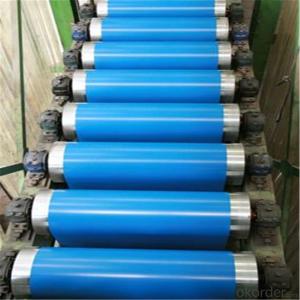Prepainted Steel Coils/Manufacture Anticorrosion Parts of Cars (PPGI)
- Loading Port:
- Tianjin
- Payment Terms:
- TT OR LC
- Min Order Qty:
- 25 m.t.
- Supply Capability:
- 50000 m.t./month
OKorder Service Pledge
OKorder Financial Service
You Might Also Like
Item specifice
1. Detailed Specifications of Prepainted Steel Coils/Manufacture Anticorrosion Parts of Cars (PPGI)
| Product | Prepainted Steel Coils/Manufacture Anticorrosion Parts of Cars (PPGI) |
| Base material | Hot dipped galvanized steel sheet |
| Top side: | 15-25µm |
| Back side | 5-8µm |
| Zinc coating : | 30-150g/m2 |
| Width | 700-1250mm |
| Thickness | 0.3-1.0mm , Thickness tolerance: +/- 0.02mm |
| Technique | Cold rolled—>hot dipped galvanized |
| Color | All RAL color,or be customized |
| Coil ID | 508m&610mm |
| Coil weight | ≤5 tons |
| Packing | standard seaworhty package |
| Special specifications can be negotiated. | |
2. Applications of Prepainted Steel Coils/Manufacture Anticorrosion Parts of Cars (PPGI):
They are mainly used in construction ,light industry, automobile, agriculture, animal husbandry, fishery and commerce,etc industries.
.Manufacture anticorrosion, industrial and roof boarding,roof grille.
.Make home appliance’s case, civil chimney, kitchen utensils.
.Corrosion resistant parts of cars.
.Food storage, meat and aquatic products’ freezing and processing equipment.
.The equipments to store and transport materials, and packing implements.
3. Image :
production Line:
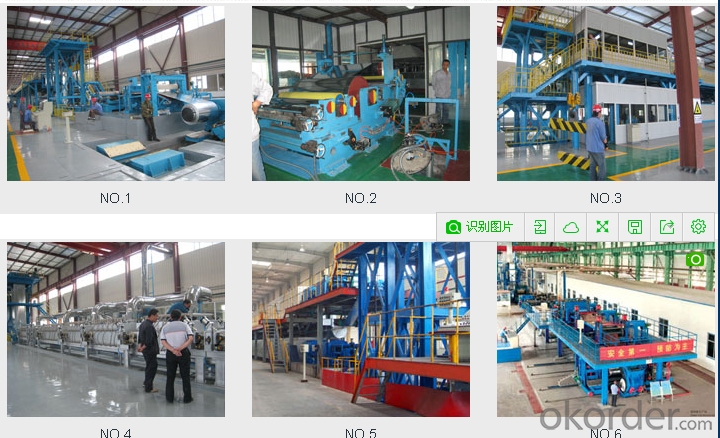
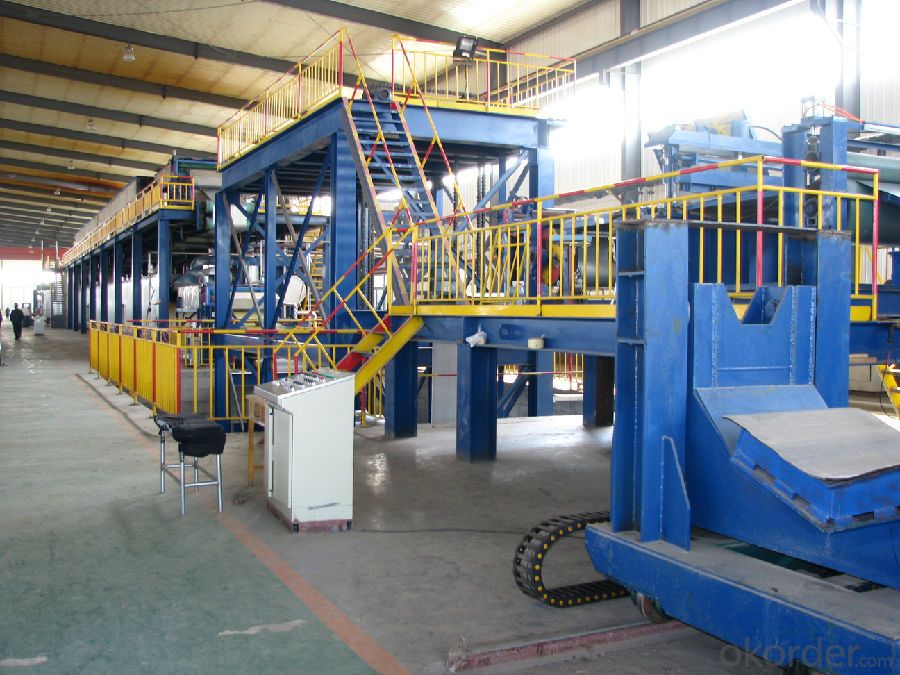
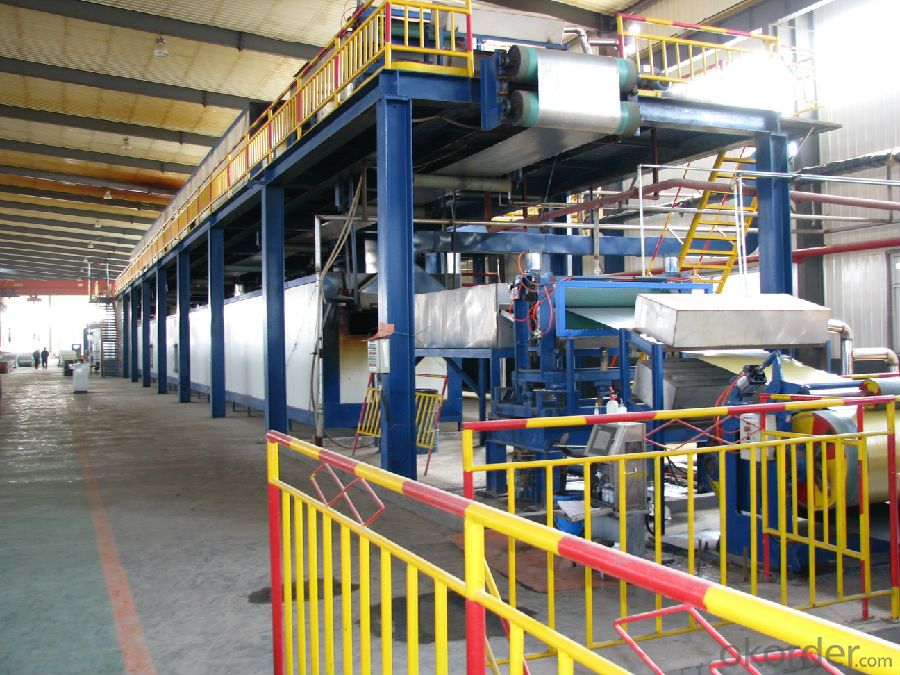
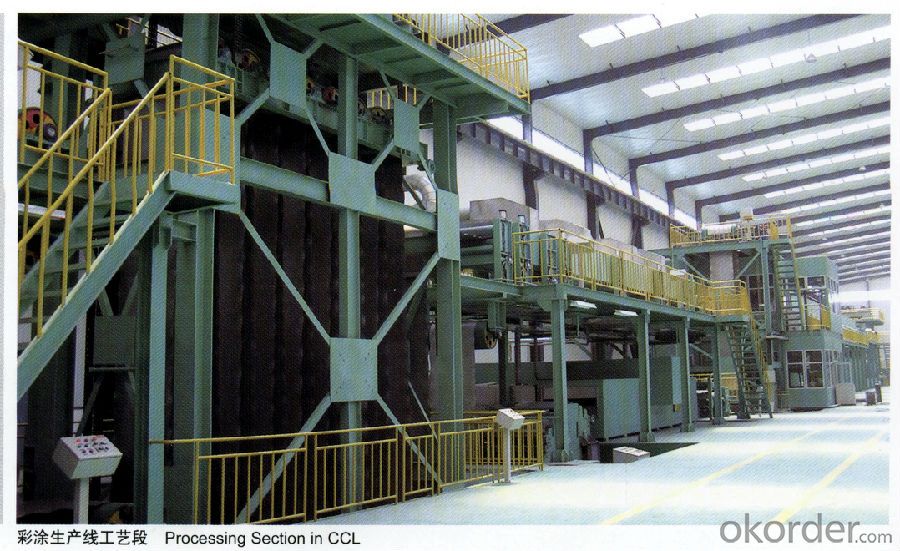
production show:
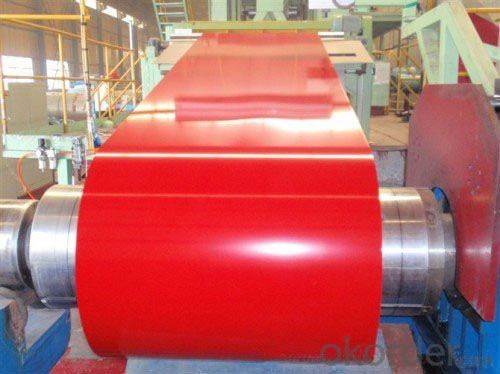
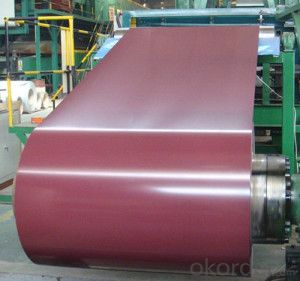
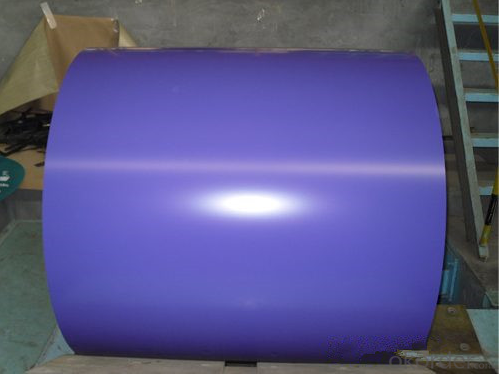
4.Packaging & Delivery
(1)Metal Band Strapping (2) Outside Diameter Ring (3) Label
(4)Protective Steel Sheet (5) Water and Rustproof paper (6)Steel Sheet
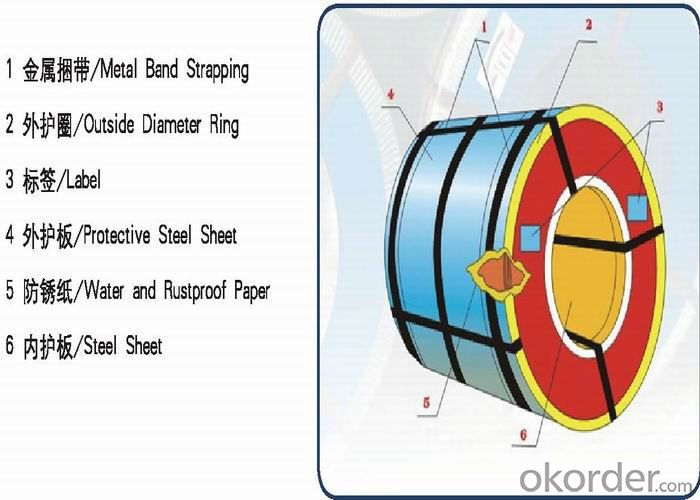
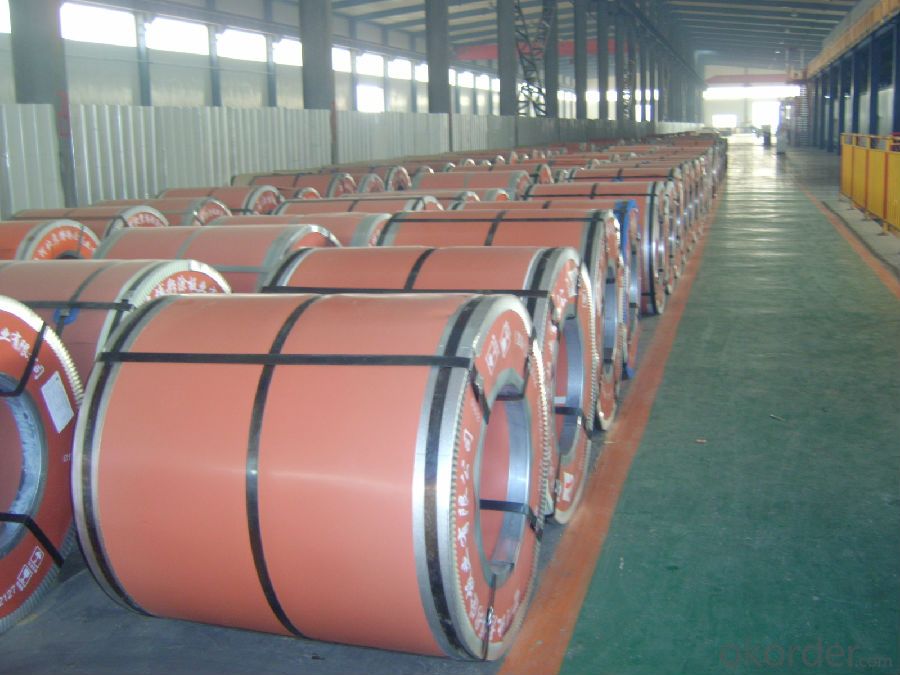
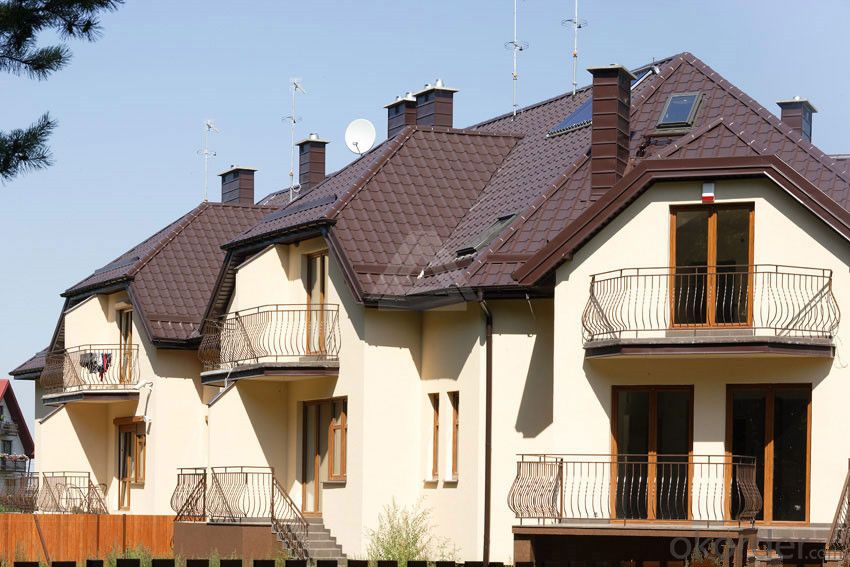
5.FAQ
We have organized several common questions for our clients,may help you sincerely:
①How about your Warranty?
Warranty: 1Year for the whole light. Warranty is based on correct storage, installation, using and mainten anc.
②How to guarantee the quality of the products?
We have established the international advanced quality management system, every link from raw material to final product we have strict quality test; We resolutely put an end to unqualified products flowing into the market. At the same time, we will provide necessary follow-up service assurance.
③How long can we receive the product after purchase?
In the purchase of product within three working days, We will arrange the factory delivery as so on as possible.
- Q:Does anyone know how to make a steel helmet, or does anyone know where to direct me websites-wise? i've just started looking on the web for info, so when i get back here i might've already found some info, but more wouldn't hurt, especially if from people who are interested on the subject. i know nothing about metallurgy, nothing on the art of metal working etc... please help.
- The okorder (Artist Blacksmiths) or on the sites of the two organizations that reproduce old costumes and tools - one is called The Society for Creative Anachronism, not sure of the other. Search terms to use might be hammering a helmet and forging medieval armor
- Q:Im looking at some knives and am wandering if they use good steel one is this case knife and its 54 dollars Do they use good steel or not Iv never had a good experience with Case but am wandering if they use good steel now? if you all have any other recommendations let me hear them I got my Selection from here so any others wont hurt. so basic break down does case use good steel know?
- Case okorder /
- Q:What are the common coil tests performed for quality control?
- Some common coil tests performed for quality control include tension tests, bend tests, hardness tests, and dimensional checks. These tests help to ensure that the coils meet the required specifications and are of high quality.
- Q:What are the different methods of surface cleaning for steel coils?
- There are multiple options available for cleaning the surface of steel coils, and the choice of method relies on specific requirements and conditions. 1. Mechanical Cleaning: To physically eliminate dirt, rust, or other contaminants from the surface of steel coils, mechanical tools like wire brushes, sanding discs, or abrasive pads are used. It is commonly employed for light cleaning and can be done manually or with the assistance of automated equipment. 2. Chemical Cleaning: By using various cleaning agents or solvents, chemical cleaning dissolves or loosens contaminants from the surface of steel coils. This method effectively removes oil, grease, or stubborn dirt. The selection of chemicals depends on the type of contaminants and the desired level of cleaning. It is crucial to adhere to safety guidelines and use appropriate protective equipment when utilizing chemical cleaners. 3. Power Washing: High-pressure water jets are utilized in power washing or pressure washing to eliminate loose particles, dirt, or contaminants from the surface of steel coils. This method is effective for extensive cleaning and can be combined with chemical cleaners for better results. Adjusting the water pressure according to the surface type and using suitable nozzles is important to prevent damage. 4. Pickling: Pickling is a chemical cleaning method that involves immersing steel coils in an acidic solution, typically a mixture of hydrochloric acid and sulfuric acid. This process eliminates scale, oxides, and other impurities from the steel's surface. Pickling is frequently employed for heavy-duty cleaning and preparing steel coils before further processing or coating. 5. Electrolytic Cleaning: Electrolytic cleaning employs an electric current to remove contaminants from the surface of steel coils. The coils are submerged in an electrolyte solution, and the application of direct current causes the contaminants to dissolve or dislodge. This method is highly effective for eliminating rust or corrosion and can be used in conjunction with other cleaning methods. When choosing the appropriate surface cleaning method, it is vital to consider factors like the type and condition of the steel coils, the required level of cleanliness, and any specific industry standards or regulations. Regular maintenance and cleaning are essential to ensure the longevity, performance, and corrosion resistance of steel coils.
- Q:What is the role of steel coils in the production of appliances?
- Steel coils play a crucial role in the production of appliances as they serve as the primary material for constructing the outer bodies, frames, and internal components of various appliances. The coils are formed into desired shapes and sizes, ensuring durability, stability, and strength of the appliances. Additionally, the steel coils enable efficient heat transfer, enhancing the performance and longevity of appliances such as refrigerators, stoves, and washing machines.
- Q:How are steel coils used in the production of industrial tanks?
- Steel coils are used in the production of industrial tanks as they are rolled and formed into the desired shape to create the tank's structure. The coils provide the necessary strength and durability required to withstand the pressure and weight of the tank's contents.
- Q:How are steel coils inspected for surface finish?
- Steel coils are inspected for surface finish through a visual examination by trained inspectors. They carefully inspect the coils for any defects, such as scratches, pits, or uneven surfaces. Additionally, specialized equipment like optical scanners or digital cameras may be used to capture high-resolution images for a more detailed analysis. The goal is to ensure that the surface finish of the steel coils meets the required standards and is free from any imperfections that could affect its quality or performance.
- Q:What are the main factors that affect the flatness of steel coils?
- The main factors that affect the flatness of steel coils include the quality of the raw material used, the thickness and width of the coil, the temperature and humidity during the manufacturing process, the tension applied during coiling, and the cooling and leveling processes employed.
- Q:How are steel coils used in the manufacturing of telecommunications equipment?
- Steel coils are used in the manufacturing of telecommunications equipment as they are commonly used as a raw material for various components, such as enclosures, cabinets, and brackets. The coils are processed and shaped to create the necessary parts that provide structural support, protection, and stability to the telecommunications equipment.
- Q:What are the different types of steel coils available?
- There are several different types of steel coils available, each with its own specific properties and uses. 1. Hot Rolled Steel Coils: These coils are produced at high temperatures and are commonly used in applications that require a smooth and polished finish, such as automotive parts, construction materials, and machinery. 2. Cold Rolled Steel Coils: These coils are processed at lower temperatures to improve the surface finish and dimensional accuracy. They are widely used in industries such as automotive, appliances, and electronics, where a high level of precision is required. 3. Galvanized Steel Coils: These coils are coated with a layer of zinc to protect the underlying steel from corrosion. They are commonly used in construction materials, roofing, and automotive parts that are exposed to harsh environmental conditions. 4. Stainless Steel Coils: These coils are made from a combination of iron, chromium, and other elements to provide excellent corrosion resistance and high strength. They are widely used in applications that require hygiene, such as food processing equipment, medical instruments, and kitchen appliances. 5. Electrical Steel Coils: These coils are specifically designed for applications that require magnetic properties, such as transformers, electric motors, and generators. They have low core losses and high permeability to efficiently transfer electrical energy. 6. Pre-painted Steel Coils: These coils are coated with a layer of paint or other protective coatings to enhance their aesthetic appeal and provide additional protection against corrosion. They are commonly used in the construction industry for cladding, roofing, and siding. 7. Tinplate Steel Coils: These coils are coated with a thin layer of tin to prevent corrosion and provide a barrier against moisture and oxygen. They are widely used in the packaging industry for cans, containers, and other food or beverage packaging. These are just a few examples of the different types of steel coils available in the market. Each type has its own unique properties and applications, making them suitable for various industries and purposes.
1. Manufacturer Overview |
|
|---|---|
| Location | |
| Year Established | |
| Annual Output Value | |
| Main Markets | |
| Company Certifications | |
2. Manufacturer Certificates |
|
|---|---|
| a) Certification Name | |
| Range | |
| Reference | |
| Validity Period | |
3. Manufacturer Capability |
|
|---|---|
| a)Trade Capacity | |
| Nearest Port | |
| Export Percentage | |
| No.of Employees in Trade Department | |
| Language Spoken: | |
| b)Factory Information | |
| Factory Size: | |
| No. of Production Lines | |
| Contract Manufacturing | |
| Product Price Range | |
Send your message to us
Prepainted Steel Coils/Manufacture Anticorrosion Parts of Cars (PPGI)
- Loading Port:
- Tianjin
- Payment Terms:
- TT OR LC
- Min Order Qty:
- 25 m.t.
- Supply Capability:
- 50000 m.t./month
OKorder Service Pledge
OKorder Financial Service
Similar products
New products
Hot products
Related keywords
